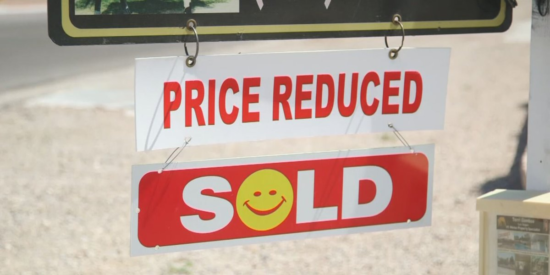Founded in 1993 by brothers Tom and David Gardner, The Motley Fool helps millions of people attain financial freedom through our website, podcasts, books, newspaper column, radio show, and premium investing services.
Founded in 1993 by brothers Tom and David Gardner, The Motley Fool helps millions of people attain financial freedom through our website, podcasts, books, newspaper column, radio show, and premium investing services.
You’re reading a free article with opinions that may differ from The Motley Fool’s Premium Investing Services. Become a Motley Fool member today to get instant access to our top analyst recommendations, in-depth research, investing resources, and more. Learn More
The COVID-19 pandemic provided a generational catalyst for the U.S. housing market. Median home prices soared over 40% in less than two years as record-low interest rates drove the cost of financing a home to new lows and work-from-anywhere policies allowed more young adults to move away from downtown urban areas. Now mortgage rates are soaring, causing housing prices to stagnate and even decline in many regions around the country.
One company feeling the brunt of this slowdown is Opendoor (OPEN -12.18%), an online home flipper. The company’s profit margins are deteriorating due to declining home prices and poor acquisition decisions over the last few years, causing investors to get extremely pessimistic about its future prospects. Here’s why the worst is yet to come from this disaster of a real estate disrupter.
Opendoor’s Q4 2022 earnings were ugly. Revenue declined 25% year over year to $2.86 billion, with gross margins sliding from 7.1% to 2.5%. That gave Opendoor a whopping $71 million in gross profit last quarter, which wasn’t even enough to cover the $113 million in interest expenses from the debt it uses to finance home purchases.
And it is not as if the company is frugal with its operating expenses. Opendoor spent $194 million on sales/marketing, $23 million on corporate expenses, and $48 million on technology/product development expenses in the fourth quarter. Add it all up, and Opendoor posted a net loss of $399 million just in Q4. For all of 2022, the company lost $1.35 billion while generating only $667 million in gross profit.
Opendoor needs to scale its gross profit to much greater heights in order to turn net income positive. For a home flipper, there is a pretty simple formula for making this happen: Sell your housing inventory for more than you bought it for, net of financing costs. This is an easy task when home prices are soaring and the Federal Reserve has interest rates at zero. It is much more difficult when interest rates start rising at the fastest pace in history, increasing your interest expenses and making housing affordability the worst it has ever been for consumers, including the peak of the 2006 housing bubble. To simplify it, home flippers are tied to the housing market, putting it at the mercy of macroeconomic factors and the Federal Reserve.
Adding on to these woes, it seems Opendoor is actually quite bad at home flipping. For example, in August of 2022 it is estimated that the company lost money on 42% of its transactions. This was in the third quarter of last year, when the median home price in the United States was still rising. In Q4 of 2022, housing prices went into a slight decline, leading to Opendoor’s gross margin deterioration. If home prices stagnate further or even go into a cyclical downturn for an extended period, Opendoor is going to be in a world of hurt financially.
Opendoor needs to look itself in the mirror and realize it is running on a flawed business model. Flipping homes as an online marketplace still means buying physical assets financed with debt, having them sit on your balance sheet, and (hopefully) selling them at a higher price a few months later.
The only path forward for Opendoor is to pivot its business model. It has over $1 billion in cash on its balance sheet and $4.5 billion in home inventory it can liquidate. At a market cap of under $1 billion, it doesn’t have to build a gigantic new business in order to start creating value for shareholders. But if it continues down this home-flipping path in an economy with declining home values, it will only continue to destroy shareholder value.
Brett Schafer has no position in any of the stocks mentioned. The Motley Fool has positions in and recommends Opendoor Technologies. The Motley Fool has a disclosure policy.
*Average returns of all recommendations since inception. Cost basis and return based on previous market day close.
Invest better with The Motley Fool. Get stock recommendations, portfolio guidance, and more from The Motley Fool’s premium services.
Making the world smarter, happier, and richer.
Market data powered by Xignite.

